- The public hearing for the case took place on April 26 and 27, 2023, during the 156th Ordinary Period of Sessions of the Inter-American Court held in Santiago, Chile.
- EarthRights International supports it as an amicus curiae.
The Quilombola Communities of Alcântara await a judgment from the Inter-American Court of Human Rights in a landmark case filed against the Brazilian State. The public hearing for the case took place on April 26 and 27, 2023, during the 156th Ordinary Period of Sessions of the Inter-American Court held in Santiago, Chile, and now the Quilombola Communities of Alcântara and the Brazilian civil society eagerly await the decision. The case is already historic, not only because of the pioneering confrontation of actions carried out by the Brazilian Armed Forces in an international court but also because it will be the first time that the Inter-American Court will rule on the rights of Brazilian Quilombola communities connected to their ancestral and collective ownership of their territory.
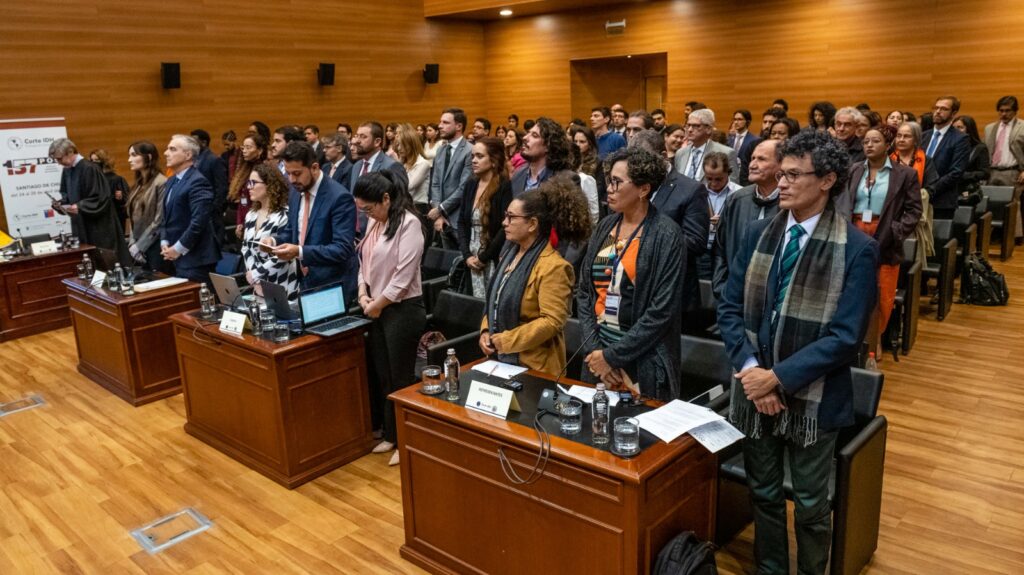
Quilombola communities are Afro-descendant communities characterized by their traditional ways of life and ancestral territories, with a historical trajectory and their own cultural identity developed through specific relationships with the environment, marked by resistance to various forms of domination. Historically, “Quilombos” were formed in Brazil as a result of resistance to slavery and racism. The Brazilian state recognizes them as subjects of collective rights, with procedures established in legislation to ensure their territory, with state agencies responsible for the process of identification, demarcation, and collective titling of their lands. In 2008, Quilombola communities were equated with tribal peoples for protection purposes by the International Labor Organization (ILO) Convention 169 – a recognition achieved after a complaint filed by the Quilombola communities of Alcântara with the ILO.
According to a preliminary mapping by the Brazilian Institute of Geography and Statistics (IBGE), there are around 6,000 Quilombola communities in Brazil. A significant portion of them, approximately 1,500 communities, is located in the state of Maranhão, which has the Amazon as one of its biomes and is located in the northeastern region of Brazil. The great biodiversity of the Amazon also results from the multiplicity of indigenous and traditional communities that inhabit it. In addition to Indigenous Peoples, there are also riverine communities, rubber tappers, artisanal fishermen, and Quilombolas, among others. It is precisely in the Maranhão Amazon that the Quilombola communities of the municipality of Alcântara are found.
The case brought by the Quilombola Communities of Alcântara before the Inter-American Human Rights System concerns the international responsibility of the Brazilian state for human rights violations since the 1980s in 152 Quilombola communities, resulting from the installation, operation, and expansion of a Brazilian Air Force rocket launch base known as the Alcântara Launch Center (CLA). The entire process of conception, planning, installation, and operation of the CLA has been carried out without prior, free, and informed consultation (FPIC) to obtain the consent of the affected Quilombola communities, as well as without the proper Social and Environmental Impact Studies (EISAs).
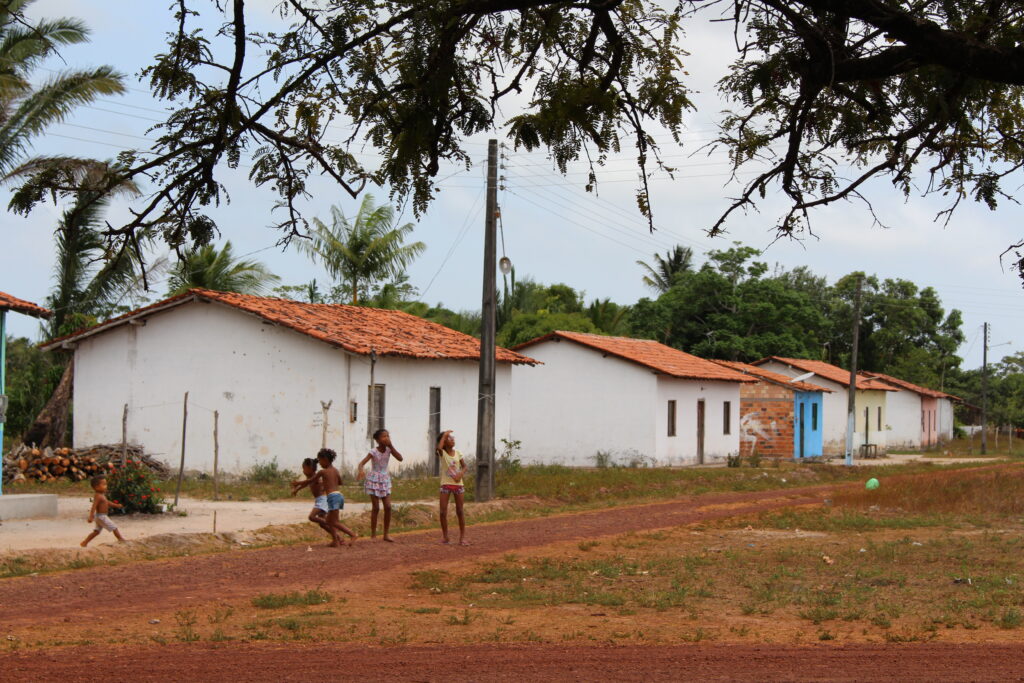
From the outset, the arrival of the project was followed by the forced displacement of dozens of Quilombola communities in the region, violating the right to ancestral property. These communities were resettled in “agrovilas” without decent housing conditions and in circumstances that hindered or prevented the continuation of their ways of life, such as the lack of access to the sea for fishing, infertile or too small lands for agriculture, and a scarcity of water, tearing apart the social fabric that united many families and villages. The merit report of the Interfamilies and Mission on Human Rights (IACHR) points out that the Brazilian state did not carry out an adequate resettlement process, did not fully compensate the families, and did not allow the communities to enjoy any potential benefits of the project.
For the Quilombola communities that remained in their territory, life has not been any less difficult. On different occasions, the Brazilian state implemented policies to expand the CLA area and directed its activities towards entering into commercial agreements with other countries for rocket launches, notably with Ukraine and the United States. These commercial policies of expansion and use of the CLA, coupled with the delay in titling their traditional territories and living with a range of unknown impacts, created a permanent environment of insecurity and violations of the communities’ rights, who live under the threat of being expelled from their land, incursions by external agents, and violent actions to regain possession.
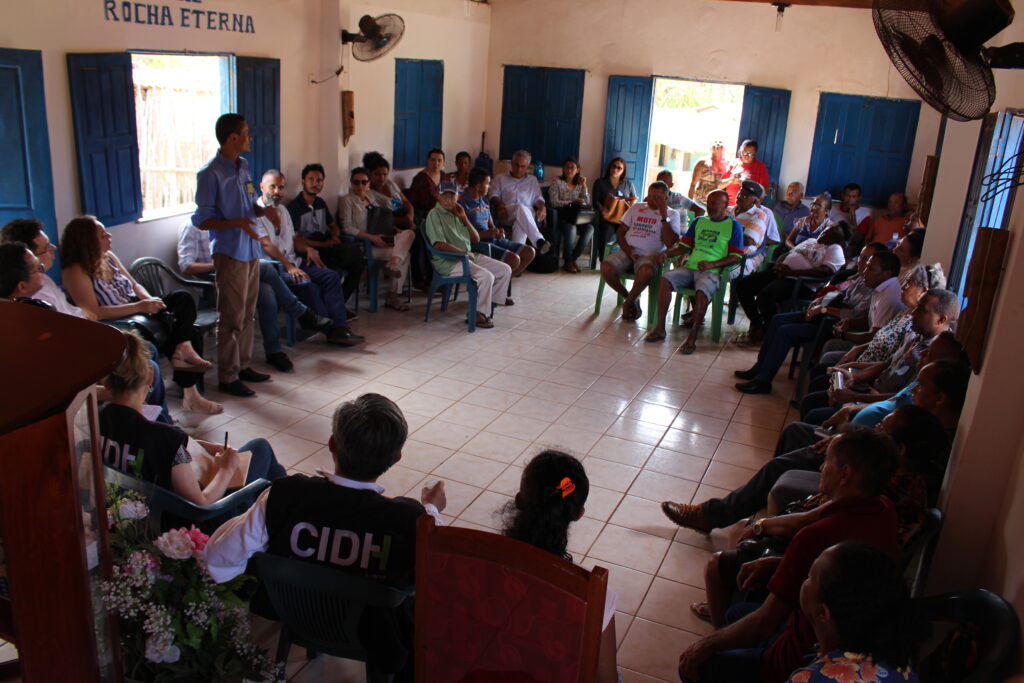
During the public hearing held by the Inter-American Court in April of this year, the Brazilian state acknowledged violations of the property rights of the Quilombola communities of Alcântara due to the lack of land titling and the right to judicial protection due to procedural delays and inefficiency in judicial and administrative bodies. It issued an official apology for these violations, which was questioned by the communities and petitioner associations. As for the reparation measures, Brazil committed to progressively titling the Quilombola territory of Alcântara, at least the lands already belonging to the Union, and to facilitate the allocation of financial resources as compensation, although without a specific budget allocation.
Despite recognizing some of the violations and seeking to avoid condemnation on the merits, the Brazilian state argued that the Inter-American Court lacked jurisdiction to judge the case for temporal reasons since, at the time of the creation of the project, the country had not yet joined the Inter-American Human Rights System, and ILO Convention 169 had not yet been created. Brazil’s position was interpreted as inconsistent by some sectors, which pointed out the difficulty of the Lula government in aligning the contradictory positions of the progressive and conservative sectors that make up the current administration.
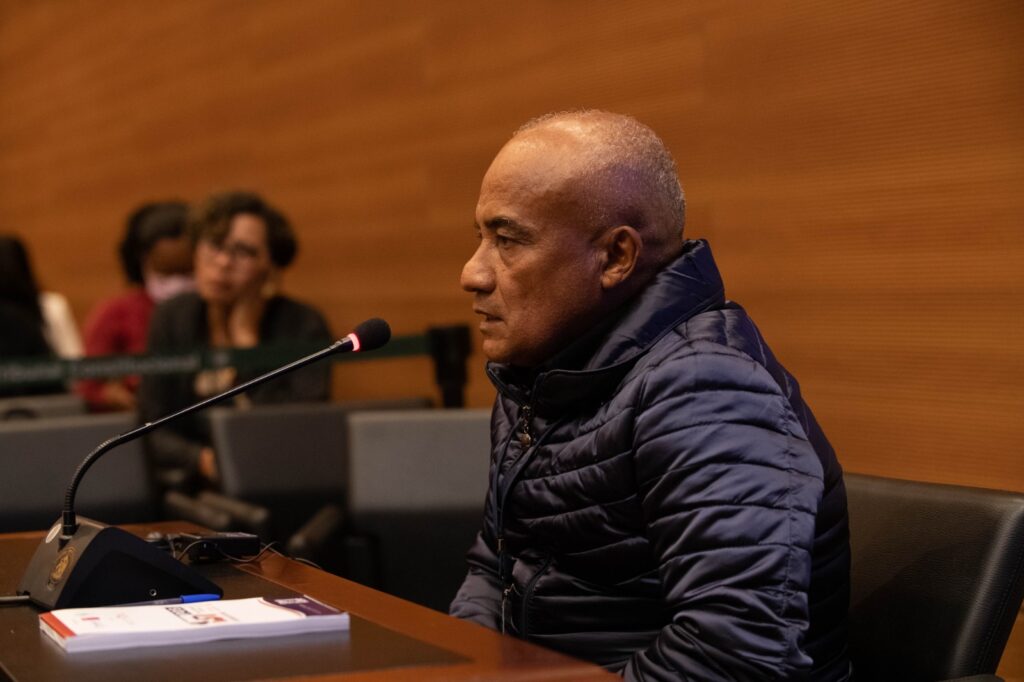
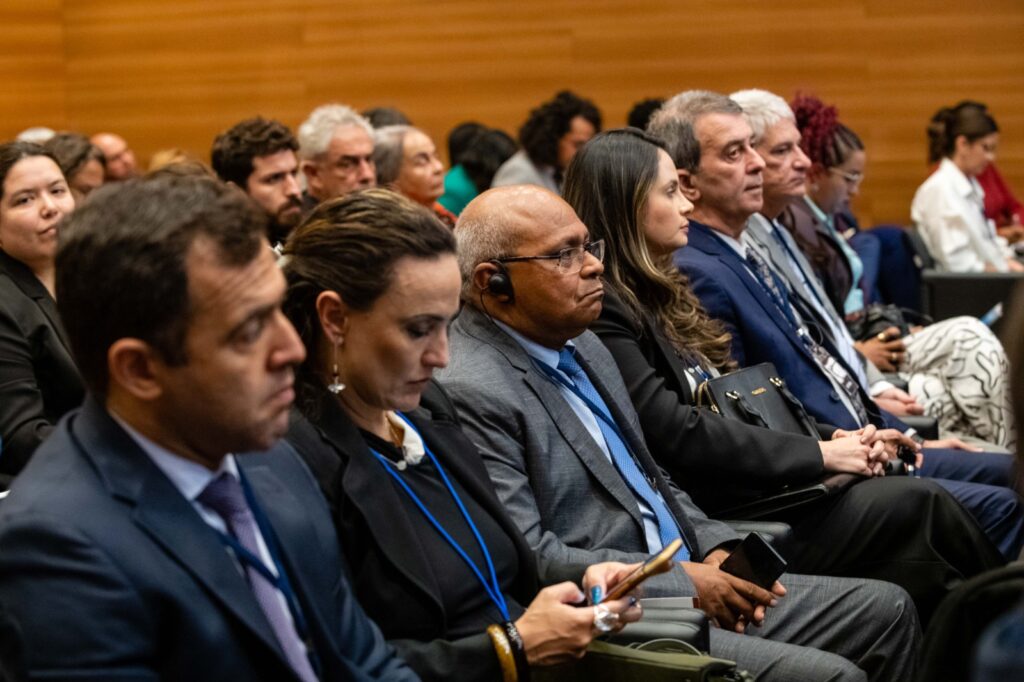
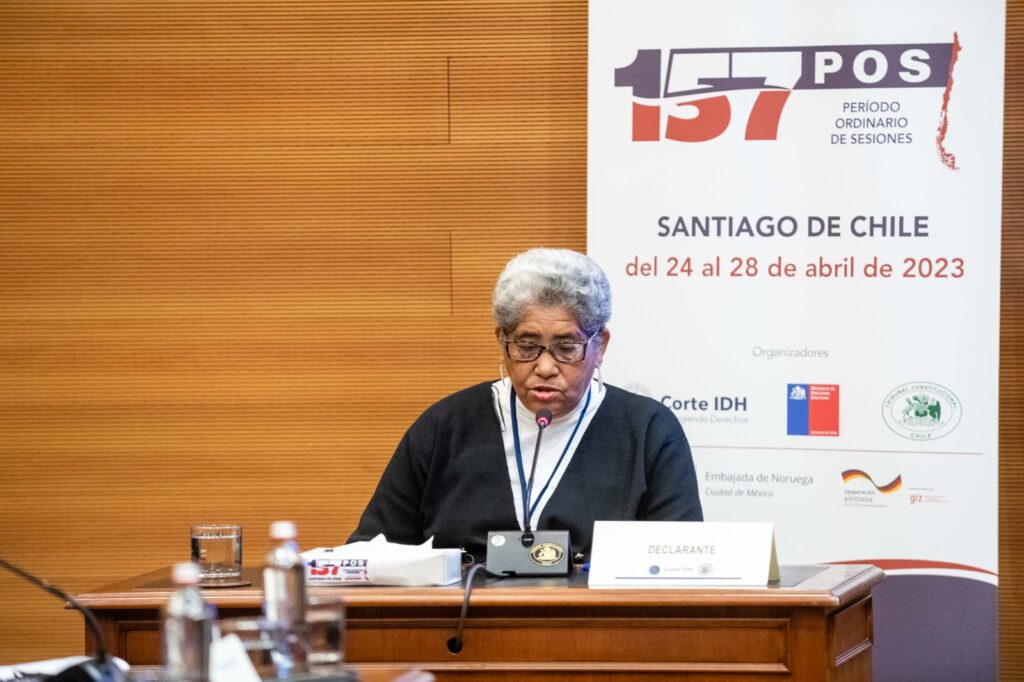
For the petitioner entities in the case before the Court, such as The Movement of People Affected by the Launch Base (MABE), the Association of the Quilombola Ethnic Territory of Alcântara (ATEQUILA), the Union of Rural Workers and Family Agriculture of Alcântara (STTR), the Movement of Working Women (MOMTRA), and Justicia Global, the apologies offered are incomplete and raise doubts. The organizations denounce the lack of recognition of the right to property associated with the forced displacement of the communities, as well as uncertainty about the “progressive titling” proposed by the government, which does not specify the extent or location of the territories to be titled or the legal format of such titles. The organizations fear that, once again, they will not be consulted and unable to participate in the decision-making processes.
EarthRights International (ERI) provided its contributions to the case through the mechanism known as Amicus Curiae
As a non-governmental organization with knowledge, experience, and action in the defense of the human rights of Indigenous Peoples, Quilombolas, and traditional communities in the region. Specifically, it sought to draw the attention of the Inter-American Court to Brazil’s international obligation to carry out Social and Environmental Impact Studies (EISAs), which the state has not fulfilled. Based on the case analysis, we pointed out in the Amicus Curiae brief that Brazil did not fulfill this international obligation because impact studies were not conducted before the creation, implementation, or authorization of new phases of the CLA over the last four decades. Some studies were conducted, but they were in violation of inter-American standards, as, for example, they were not carried out by an independent entity, and the participation of the Quilombola Communities of Alcântara was neither enabled nor guaranteed.
Meeting between indigenous peoples within the framework of the session of the Inter-American Court in Chile
Other emblematic cases had their hearings scheduled for the same period of sessions of the Inter-American Court, including the case of the U’wa Nation of Colombia, which suffered human rights violations due to the implementation of oil and gas projects in their territory without consultation and consent. To make the most of the presence of so many leaders and members of these communities in Santiago, ERI organized a conversation between the representative entities of the Quilombola communities of Alcântara, including ATEQUILA, STTR, MABE, and MOMTRA, and the Association of Traditional Authorities and Cabildos U’wa (ASOU’WA), as well as representatives of the Sarayaku people of Ecuador and the Mapuche people of Chile.
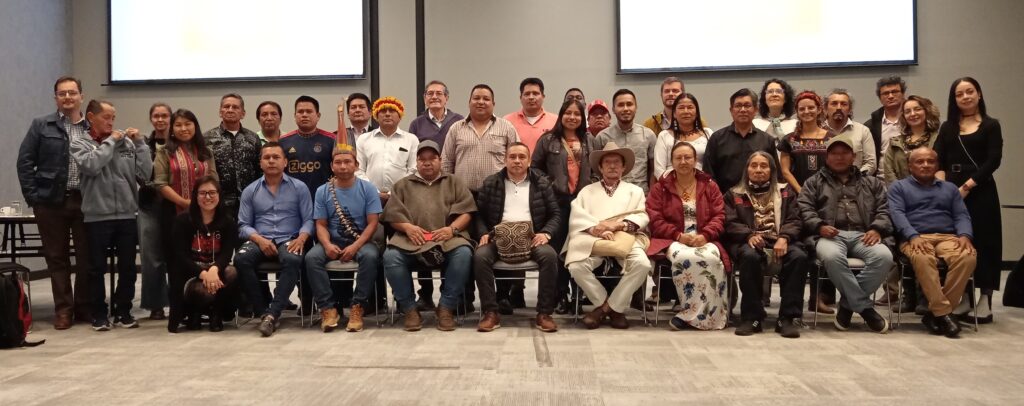
Throughout the conversation, the communities could share experiences and strategies of struggle, including an assessment of actions within the Inter-American Human Rights System, and align common agendas and struggles.
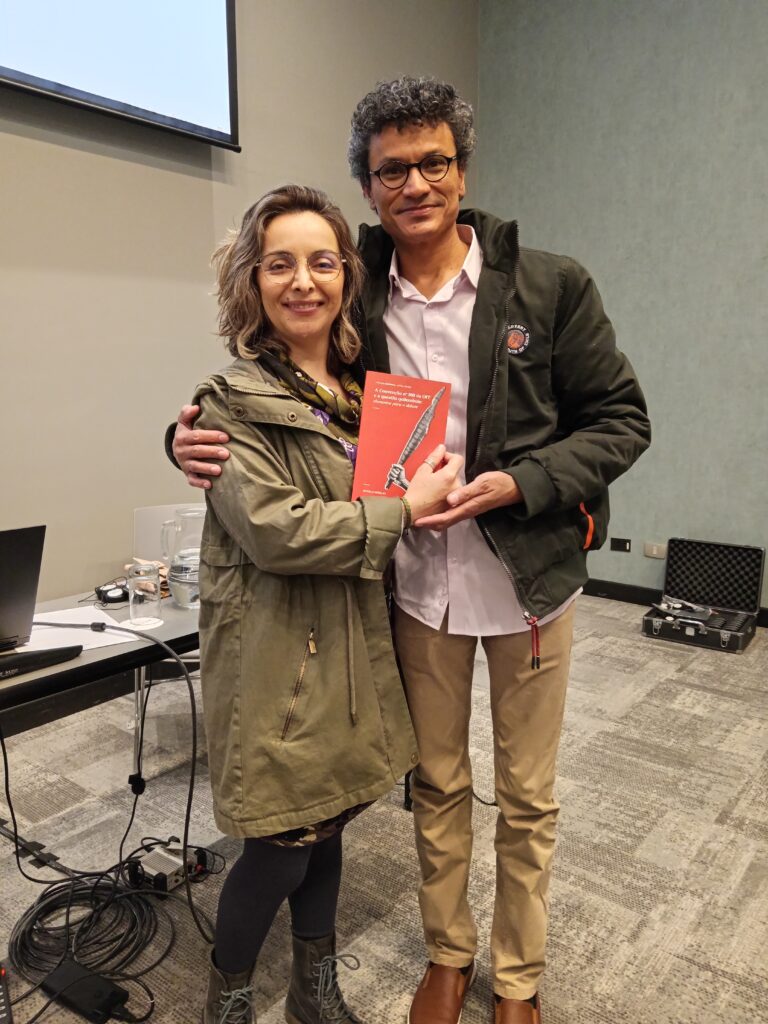
In addition, Danilo Serejo, leader and legal advisor of the quilombola communities, presented his book “A convenção n° 169 da OIT e a questão quilombola: elements para o debate”, published by Justiça Global, which systematizes the knowledge built from the experiences of appropriation of the mechanism and offers a set of reflections on the application of the treaty.
We await, together with the communities and grassroots organizations of Alcântara, social movements, and allied organizations, a judgment from the Inter-American Court that categorically affirms the rights of Quilombola peoples and traditional communities in Brazil and throughout the inter-American region. As the quilombos of Maranhão say: “Alcântara is Quilombola!” And may we be able to shout:
“America is also Quilombola!”
Contact:
Cecilia Vieira – cecilia@earthrights.org
Bernardo Xavier dos S. Santiago – bernardo@earthrights.org




